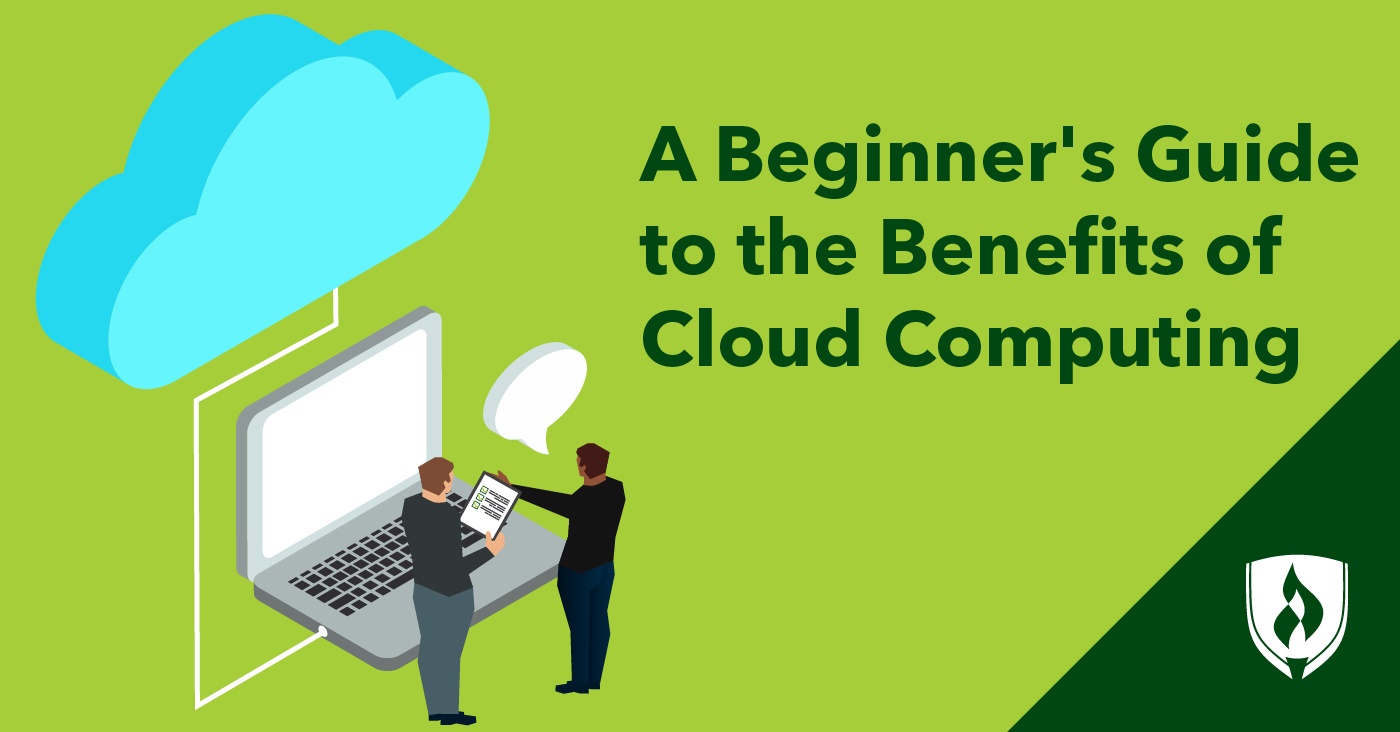
To most people, “the cloud” may seem incomprehensible—it sounds like maybe a magical bank in the sky for data. While that image is far from the truth, the cloud certainly does offer some—if not magical, at least remarkable—benefits.
“The cloud. We’ve all heard the term thrown about in recent years,” says Roy Whelan, solutions director of SmartOffice. Whelan explains cloud computing means storing data on remotely accessible servers hosted on the internet. “This means businesses can manage data in a shared space and can access data from any location, not just from a local server.”
Before cloud computing, companies needed to invest in on-site servers to store their data, Whelan explains. This could get expensive with the physical requirements of the servers as they need space, physical hardware, software and maintenance, as well as an in-house IT team you’d need to manage them.
Cloud computing offers companies the chance to utilize virtual storage space on the internet. But the benefits keep building from there. If you are interested in cloud computing, read on! We asked business leaders and professionals in technology to share some of the benefits of cloud computing
7 Potential benefits of cloud computing you should know about
1. Cost
“For me, one of the biggest reasons to switch to cloud is cost,” says Greg Dickens, founder of Epilocal. “With cloud, you are only paying for server time you use, rather than having to invest lots of money up-front to run your own servers, so there’s a big cash-flow benefit there.” Dickens emphasizes that, for smaller companies and start-ups, removing that initial barrier of in-house servers can make a huge difference in their ability to compete.
A growing cloud trend, serverless architecture can further compound the savings in cloud computing, according to Dickens. “Serverless architecture deconstructs cloud servers to their absolute minimum: individual functions. So now, rather than having to rent cloud servers for the time you use them, you can rent individual functions instead.”
2. Scalability
Cloud computing is cost effective and efficient for big businesses and small businesses alike because it allows you to pay for what you use. “Cloud computing plans allow businesses to scale their data usage and computing power up or down depending on their needs and budget,” says Sebastian Schaeffer, CTO and owner of dofollow.io. Using what you need and adjusting as you go is more flexible than investing in hardware, Schaeffer points out, and many companies desire that flexibility.
For example, think of the start-up example above. If cloud computing didn’t exist, they’d have a much tougher time determining how much should be invested in infrastructure—do you tie up resources in overshooting your current needs in anticipation of growth? Incrementally add on as needed while potentially disrupting operations? Cloud computing makes these questions much easier to navigate.
3. Accessibility
Think of the sharing and collaborating capacities of platforms like Google Drive™, Dropbox® or Microsoft Teams®, and you’ll have an idea of how much the accessibility of cloud computing has revolutionized work. Cloud-based technology allows people to collaborate on the same items from anywhere, updating in real time.
“This increases productivity and efficiency due to the reduction of phone calls and unnecessary trips to gather information,” says Jeff Roscher, CEO of eWorkOrders. He points out that streamlining these processes makes work easier and faster, increasing productivity and potential profits.
4. Regulatory compliance
Navigating the rules around data can be intense. “Many administrative agencies and an intimidating body of regulations decide what you can and cannot do with the data and personal details of your staff and consumers,” says William Munir, CEO of GroomingHut.
Munir explains that these regulations are strictly monitored—and mistakes can bring trouble for a company.
“Cloud vendors can help you easily comply with these regulations by offering turn-key applications tailored to your industry and country, ensuring that you remain compliant even as laws change,” Munir says.
5. Automated updates
The rigor of cybercrime, DevOps methodology and constant innovation in software can result in important software updates arriving every day. If you individually purchase, implement, and maintain all the hardware and software your company needs, that can be a lot to keep up with. “The benefit of cloud computing is that the servers are located somewhere, out of sight and out of mind,” says Tanner Arnold, president and CEO of Revelation Machinery.
“Suppliers handle the servers for you and distribute daily software updates, including security updates, so you don't have to waste time managing the device yourself. This frees you up to concentrate on the important stuff, such as growing your company.”
6. Data protection
“Your data is not only more accessible in the cloud, but it is much less likely to be corrupted or destroyed,” says Ryan Dalal, CEO and founder of Merge PDF. For example, Dalal points out that major cloud storage vendors have thousands of hard drives and copy records in multiple physical locations, protecting your information even if one of the centers were to be destroyed.
“This allows them to back up data easily with several levels of redundancy.”
7. Reduced environmental impact
“One of the reasons that some companies choose cloud computing has little to do with price, security or reliability,” Schaeffer says. “But because cloud computing is much more environmentally friendly than using a data center.” He explains that since data centers require a lot of electricity and have large carbon footprints, cloud computing can massively reduce a company’s carbon emissions.
Is cloud computing ever the wrong choice?
With all of the above examples, it’s hard to picture a situation where someone wouldn’t want to use cloud computing. “The scenarios where cloud doesn’t make sense are becoming less and less,” Dickens says. A few years ago, privacy and security were more of a concern with the cloud, he adds. “But cloud providers now have better security than most businesses could ever have themselves. Even the Pentagon is moving to the cloud!”
That said, there is one pretty big obstacle to cloud computing for certain companies: internet connection.
“Because cloud computing systems are entirely internet based, they are dependent on a constant and reliable internet connection,” Schaeffer points out. “Service outages are always a possibility, which could mean an inability to do business and lost revenue.”
Which IT professionals benefit from expertise in cloud computing?
As you can see, cloud computing is less of a trend and more of a changing-IT-as-we-know-it shift. That certainly has an impact on the field of information technology (IT) and computer science professions. “Developers, cybersecurity professionals and systems engineers would do well to gain cloud computing experience,” Schaeffer says. He explains that developers with cloud experience will be able to work in stronger, more secure software.
“Cybersecurity professionals stand to benefit from a stronger understanding of the cloud because there is currently a major cybersecurity skills gap and a strong demand for the expertise,” Schaeffer says, adding that the current push to move business functions and infrastructure to the cloud also opens opportunities for systems engineers with cloud expertise.
“Apart from the obvious software architects and DevOps engineers, I would say it is now also crucial for back-end and front-end developers to have expertise in cloud computing,” Dickens says. “Serverless computing makes back-end code more accessible for front-end developers since you can write serverless functions in JavaScript® using Node.js.”
How will cloud computing impact information technology?
Overall, the career impacts of cloud computing are only beginning to reveal themselves. “Cloud computing signals a shift in roles,” Whelan says, explaining that traditional IT departments had system admins, network engineers, security analysts and storage engineers. “Modern IT professionals need to be comfortable in all of the above.”
Since the benefits of cloud computing have both business and IT considerations, professionals who think about business and technology together are uniquely suited to cloud-based environments.
This is where the role of IT manager shines. Are you curious about what information technology managers do? How they get to where they are? Check out “How to Become an IT Manager: What You Need to Succeed” for an overview of this fascinating career.
Google is a registered trademark of Google, LLC.
Dropbox is a registered trademark of Dropbox, Inc.
Microsoft Teams is a registered trademark of Microsoft, Inc.
JavaScript is a registered trademark of Oracle, Inc.




